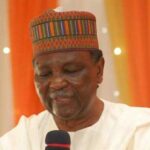
Some recent events in the past week indicate that the plight of the National Assembly as a whipping boy in the Nigerian political space, may not abate in a hurry. The assaults on the nation’s apex legislative institution are coming in droves and different shapes as well as sources including the presidency, political class, and the media, with virtually all holding it responsible for the sins of government in Nigeria, whether justifiably or otherwise. Two developments during the past week attest to the fact that for federal legislators, it is time to change their game, if they have to survive the onslaught.
In the first instance is the two-day drama which lasted between Tuesday and Wednesday, at the precincts of the establishment, in the course of which a group which styled itself as occupynas sand who upped their credential with leadership by an icon of bohemian passions – Mr Charles Oputa- aka ‘Charly Boy’, laid siege at the main gate of the institution. Their grouse was over a cocktail of grievances, while their mission was as their action betrayed – lock down the federal legislature, and deny any other person access to the place.
Their litany of demands includes the reduction by 70% of the salaries of political office holders in the country(including Mr President), abolition of the state and local government joint accounts, death sentence for corrupt politicians if convicted for criminal acts and elimination of bad leadership at all tiers of government in the country. They also demanded the application of the Treasury Single Account (TSA) at all tiers of governance. Valid as their grouse may be,a more discretional appraisal of these demands raises questions whether their style was the most efficacious, given that the Constitution adequately provides for proper channels for mounting any advocacy in the country, and in respect of, which their level of street wisdom should have guided them better.
Needless to state that for the two days the siege lasted, normal functions of the legislature were disrupted as legislators, staff, visitors including foreign guests and sundry government officials were denied access to the place. Interestingly, even other equally aggrieved and would be protesters were also denied access to the premises and could therefore not plead their own cases.
Commendably however, the authorities and the security agencies demonstrated a welcome discretion in tackling this highly provocative development, as they succeeded in granting the group the liberty to have its way, but denied access into the premises. And by that gesture the authorities successfully ended the drama in an anti-climax, like a storm in a teacup.
It is easily recalled that prior to Charly Boy’soccupynass, there was an earlier exercise in the same vein headed by one Bummi Awoyemi whose agenda then was that the President of the Senate Dr Bola Saraki should resign on the circumstances of his arraignment at the Code of Conduct Tribunal. Interestingly a counter group headed by one Solomon Adodo also emerged to counter the agenda of the occupynass group. Eventually the two groups neutralised each other. It is not unlikely that the new Charly Boy’s occupynass was prepared for any such contingency, and the non-emergence of any such counter group may have saved the country unanticipated consequences.
Within the same period and in another dimension the assault on the National Assembly manifested ina new round of media launched spin of bad press against the institution with a mis-presentation of facts surrounding payments by the executive in respect of constituency projects, associated with legislators. Several media reports erroneously linked the payments as a ‘settlement’ of the members of the National Assembly to induce accelerated treatment of the outstanding matters from the President, before them.
Typical reports of the payments in the media centred on ‘a deal’ between the Presidency and the National Assembly featuring a trade-off in which the Presidency would buy their votes for support of matters before them which include the application for virement of N180 billion as provided for in the 2016 budget, the request for $29.9 billion loan and confirmation of some appointees of the government. An immediate question from this jaundiced report is whether the section of the press canvassing the ‘deal’ theory is tacitly accusing President Buhari of engaging in bribery and corruption? Where then are they placing his personal integrity, which has remained a core pillar of the anti-corruption fight by the present administration.
Given the complexity of the business of governance, occasional misreading of certain administrative initiatives by some observers – including media operators can be admitted. The processes of governance are often dizzying to the uninitiated, including some operators in the media and may not follow a straight line, as may occur in private sector business.However, if the maxim that ‘opinion is free and facts are sacred’is still relevant to credible media practice, it becomes unbecoming for reporters to feed the reading public with the improbably salacious tale of President Buhari bribing the National Assembly in order to win their support for his programmes.Ordinarily and in the light of the new dispensation of change, the President’s programmes before the National Assembly should win legislative support purely on merit and in the interest of Nigerians. And given his persona, it is difficult to see Buhari in a different light in matters of driving his administration.
Seen in context, this tale about constituency projects ‘deal’ constitutes an undeserved assault on the sense of duty and patriotism of the legislators, especially as it frames them in the derogatory light of officers who must be bribed before carrying out their statutory functions. In that context therefore both the occupynass led by Charly Boy and the constituency project payment lobby find common ground, as extensions of the campaign of calumny against the nation’s legislative establishment.
This common ground by the two groups who are united in action against the National Assembly happens to also be the sing song of denigration of the legislature since the return to civil rule with the advent of the Fourth National Assembly in 1999. From then till now that the Eighth National Assembly is in place, the same ‘bring down campaign’ has trailed each succeeding one.
Interestingly, even with the flaunted odiousness of the National Assembly, which its detractors may elect to dwell in, patriotic men and women, who have made significant marks in society, still go to great lengths and engage no mean efforts to offer themselves for service as Senators as well as Members of the House of Representatives, and get voted forto serve there. And if being elected into the federal legislature does not diminish them, they remain distinguished and honourable.
It therefore holds that the perceived sins of the National Assembly may actually exist more in the eyes of the beholders of same- its detractors, than in the hallowed precincts of this national heritage.
 Join Daily Trust WhatsApp Community For Quick Access To News and Happenings Around You.
Join Daily Trust WhatsApp Community For Quick Access To News and Happenings Around You.


